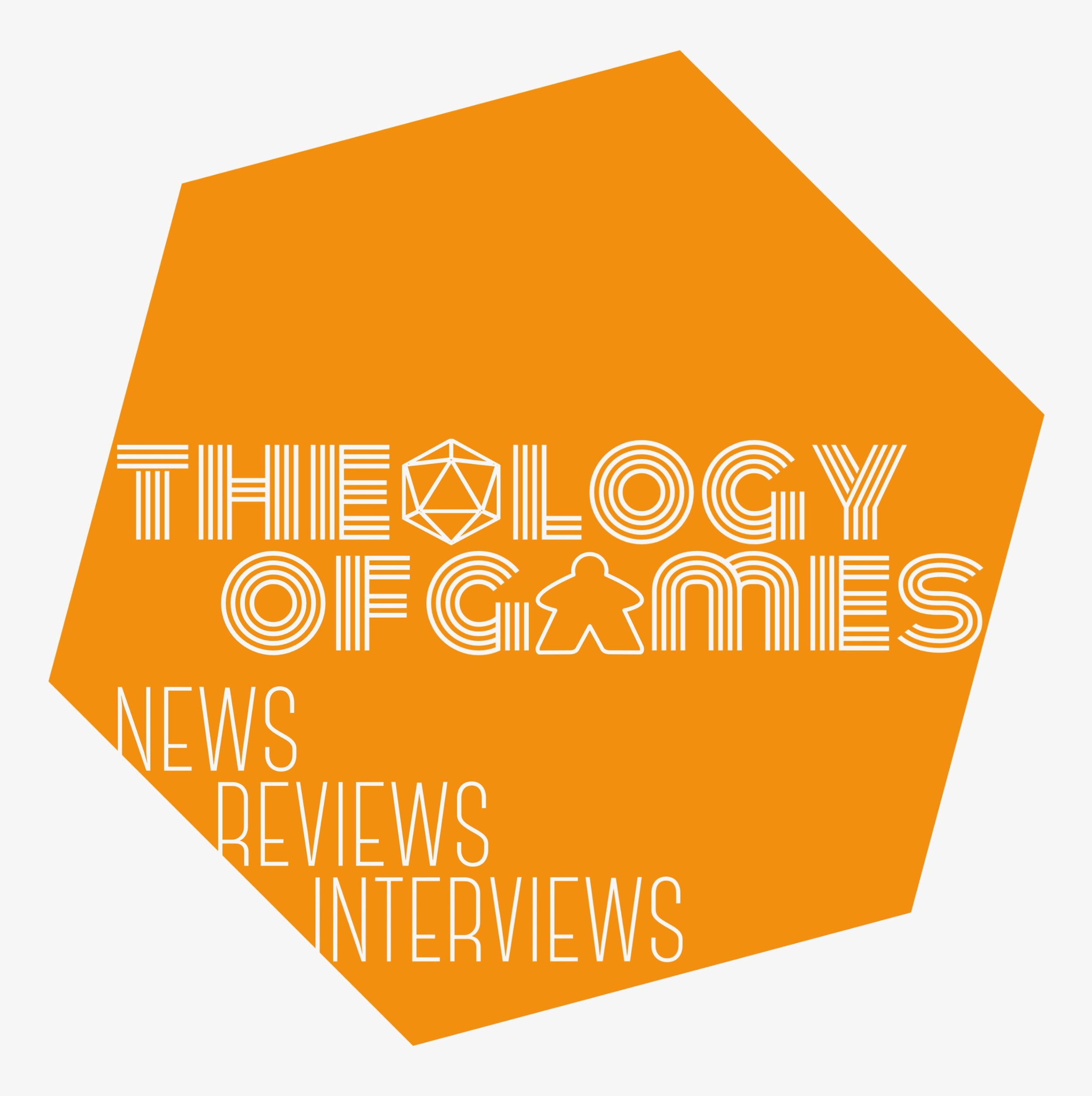An Interview with Ophir Co-Designer Jason Kingsley
/Today we’re joined by Jason Kingsley, half of the design team for Ophir, a new game on Kickstarter from Terra Nova Games.
Jason! Thanks for joining us today.
First, can you tell us a little bit about yourself?
Sure! First, thank you for having me! My wife, three boys, and I live in a small town in Northwest Arkansas surrounded by the beauty of the Ozarks. I work as a freelance illustrator and graphic designer. I am an introvert (ISTJ), I value quality over quantity, and I’m learning to cherish the simple things of life. My faith in Jesus Christ is my greatest joy and struggle.
So how did a graphic designer become a game designer?
In a way, I think the two desires grew up side-by-side for a long time. I have a great family who really encouraged learning and creativity when I was young. Reading, drawing, and playing games were among my favorite pastimes. My grandparents taught me a myriad of traditional card games, not to mention good sportsmanship. Chess, cribbage, backgammon, and many of the classic American games eventually followed. I also distinctly remember when my family was introduced to Settlers of Catan while living in Germany, which instilled in me an admiration for euro-games.
Entering college, I half-expected my path would lead to the entertainment / media world, but I didn’t imagine it would involve board games. When my interest in game design was still budding, my art career had already begun. The two merged when I posted some of my work to BoardGameGeek. I met some enthusiastic creators and worked on several small projects, allowing me to enter the community of BGG in a familiar context. It wasn’t long before I realized that I wanted to understand as much about making a game, start to finish, as possible. Joining the amazing community of gamers online, while simultaneously exploring the industry and working on game art, allowed me to take my first steps toward focused game design.
So tell us about your game Ophir.
Where do I start?! Ophir began as a simple sketch I jotted down after waking from a dream. I didn’t date the sketch, but it stuck out among the pages of notes in my design notebook and never let me go. When I teamed up with a friend, Charles Wright, to expand my concept, we found inspiration in an old story. It spoke of a great king, an unprecedented era of peace and prosperity, seafaring merchants, trade alliances, the riches of nations, and a monumental building project. During development, I returned to these stories and discovered the name “Ophir”, a port or region, famed for its gold, that had disappeared from the history books. Immersed in this ancient story, we saw our vision come alive.
In the game, you and your rivals are important people of government, trade, or religion with a singular focus—the construction of the Temple. You accomplish this feat by sending out your merchant ship, acquiring and selling precious goods, purchasing valuable metals, and contributing those metals to the Temple site. Your choices are intertwined with your opponents as you time trades at the ever-shifting Market and collectively build the rising layers of the Temple. Dice rolling, trading, blocking, managing money and cargo, and utilizing your special role are all parts of the fast, simple fun Ophir has to offer!
What sets Ophir apart from similar games?
1) The small, modular map: Often, one of the first things people notice is Ophir’s seven-hex map. Many pick-up-and-deliver games trend toward large boards and favor complicated routes, but this little map encompasses the entire game. It features a modular layout comprised of four types of basic goods, the all-important metals, and the two vital locations. The map randomization wouldn’t provide much variance by itself, but there are also two barriers placed during setup that block movement that can really alter the flow of gameplay, giving each game a different pace and feel. This is accentuated and complemented by other changing elements of the game, like the unique player role abilities.
2) Quick turns and short play time: Most turns, you sail one or two hexes with your ship and take the action(s). As a result, your move can be very quick—just a few seconds! Even in that small amount of time, each decision is important since efficiency and timing are crucial to your success. Play times average 10-20 minutes per player, making it easy to pull out just about anytime.
3) A sense of accomplishment: Whether you are picking up a basic good, trading your goods for coins at the Market, enlarging the cargo hold of your ship, gaining Favor used for special actions, purchasing valuable gold and silver, or depositing metals at the Temple for Victory Points, you are constantly improving your position. It doesn’t usually take more than a few rounds to achieve your next short-term goal, which can provide a continued sense of accomplishment throughout the game.
4) Family-friendly competition: In Ophir, there isn’t any direct conflict: There is no attacking, stealing, or cheating in order to advance your position or hurt others. You improve your standing by weighing risk and reward, positioning yourself well, planning ahead, and careful timing. There is still competition and chance involved, but everyone is “in the game” until it’s over.
5) The 3D Temple: As you contribute gold and silver to the Temple, layers of the temple are added, with the completion of the temple signifying the end of the game. These temple layers will physically stack and rise off of the board, providing—what we hope will add—a rare tangible and visual treat!
How did you get involved with Terra Nova Games?
Back in 2012, Charles attended BGG Con with our untitled prototype. We received some constructive feedback while he was there that really encouraged me, even though the game was only a shell of what it is today. From that moment, I resolved to polish the concept as much as possible by BGG Con 2013. After spending another year developing the game, researching publishers, and preparing in every way possible, I arrived with Charles at my first game convention with a game I was proud of. We attended a publisher speed-dating event, organized by James Mathe, where designers pitched their games to over 20 publishers over the course of two hours. It was a whirlwind of an experience. Part way through the convention, we were contacted by Terra Nova Games, who informed us that they had seen our demonstration at the event. Ironically, their company name was not on the publisher list for the event ahead of time. So, throwing our publisher-specific research out the window, so to speak, we met with Justin and Robert from TNG. They shared their company vision and mission in a way that resonated with us and our desires for Ophir. Their clear communication, their commitment to excellence, and their firm no-zombies policy made strong impressions on us, and the rest is history in the making!
How does your faith affect your role as a graphic and game designer?
If life really does come down to loving God and loving others, then I want everything I say, do, and make to communicate life and love. Those are lofty aspirations. They are also difficult values to embed into a physical or visual product. But perhaps I can begin to do that when I prioritize my family over my work or hobbies. Or when I value a client over an invoice amount. Or when I pay attention to a friend instead of idolizing a gaming experience. The scenarios are endless, as are the pitfalls. I need help remembering what is most important, the strength to see it through, and forgiveness when I fall short. That’s where faith comes in.
Who are your three favorite game designers--and your favorite game from each of them?
I don’t typically seek out games by the designer name, but I can share three games that have impacted me. 1) Ticket to Ride by Alan Moon; 2) Dominion by Donald X. Vaccarino; 3) The Settlers of Catan by Klaus Teuber. These games impress me by the way they distill a rich experience into a few simple decisions each turn. Each remains approachable and inviting while rewarding good choices and experience, making you want to play again and again. Even if I never played another game by these designers, their names would still mean something to me because of the memories I have playing these games with friends and family.
A quick look at your ratings on Boardgamegeek shows that your ratings skew low. Why do you think that is?
That’s a good question! Part of the story begins back when I joined BGG in 2011. I didn’t understand the rating system and couldn’t see myself ever logging plays. Many of the games I was playing at that time were new to me, so ratings became a tracking device more than anything. I ended up with a lot of safe, middle-of-the-road ratings, and without repeat plays a lot of those ratings stayed the same for a long time.
As my gaming horizons expanded, I found that I could suddenly identify what I really liked about certain games and why I didn’t care for others. So I redistributed my ratings into a rough bell curve in order to compare and contrast my developing preferences. I was surprised that by lowering some ratings, certain undervalued games rose toward the top, helping me recognize ones I really admired.
Today, I still tend to log a mid-range rating on my first play. After getting into that habit, I’ve realized I’m more likely to enjoy a game long-term if I allow it to earn my devotion rather than overrate it at the start. As I revisit past-played games, I try to revise the rating accordingly (and now I log the play!). I expect that many ratings will go up over time in tandem with the satisfaction of discovering new strategies and the true depth of each game.
So do you have any more designs on the horizon?
Maybe! I have decided to continue pursuing game design, which was a big decision for me. After these last three years, I have really tried to dig deep, ask important questions, and reflect on the journey of seeing a game through to publication. One thing in particular that continues to stick out to me is all the people who came alongside to contribute to the game Ophir is today. And that right there is why good games exist and why I’m proud to be a part of this hobby—it’s chock-full of amazing people. I’m excited about continuing relationships and making new friends, and if more published designs come out of that, I would be elated.
Okay, it’s our lightning round! Five quick questions--you answer with one word (or a short phrase). Go!
Comic sans: drown it in the ocean, or unjustly vilified hero?
Both.
Favorite Muppet?
Yoda? Cookie Monster! Swedish chef.
Favorite breakfast cereal?
Homemade maple cinnamon raisin granola.
TP: Over or under?
Isn’t it obvious?
Waffles or pancakes?
Waffles.
Thanks for joining us, Jason! Go check out Ophir on Kickstarter. They still have a ways to go on their goals, so consider pledging and pushing them over the top.

















